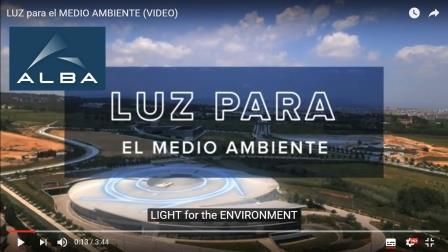
11/01/2017
ALBA Synchrotron Is Also a Tool for the Environment
ALBA Synchrotron Is Also a Tool for the Environment
More news
10/04/2019
10th Anniversary of the MELiSSA Pilot Plant: travelling to Mars is in progress near the Barcelona Synchrotron Park
25/03/2019
Barcelona Synchrotron Park Sponsors the 9th Ideas Generation Program
08/03/2019
The Barcelona Synchrotron Park aims to host a university residence
01/03/2019
Delegates of the Mobile World Congress discover the park
22/02/2019
Hub b30 takes off
16/02/2019
SENER: wind, sun and moon









